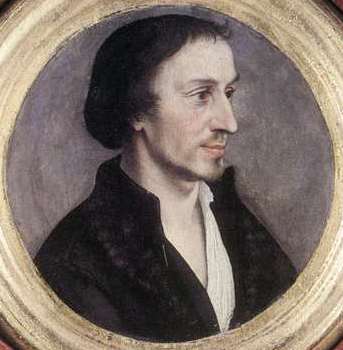DOCTORAL
PROGRAMME IN MULTI-MODAL SYSTEMS SCIENCE
|
||
|
"Paul
calls charity to edify your neighbour... to
teach the ignorant: to lift
up him that is fallen: to comfort and courage
him that is in heaviness:
to help him that labours: to succour the needy." Erasmus of Rotterdam, The Manual of the
Christian Knight
"How richly deserving of honour are the liberal sciences, which polish man, so as to give him the dignity of true humanity!" John
Calvin, Commentary
on Corinthians
"These
arts are called humanities, therefore, let them
restore our humanity.
The good God entrusted them to us, let them
makes us good." Juan Luis Vives, The Teaching of the
Disciplines or Christian Education
|
Holbein the Younger, Erasmus of Rotterdam  Holbein the Younger, Philipp Melancthon  Gerrit Dou, The Night School |
|
"Indeed, the arts form a kind of whole world, within which all are bound and linked together, so that in order to grasp each one, much must be taken from the others." Philipp Melancthon, On Philosophy
|
||
|
About
Multi-Modal Systems Thinking
|
||
|
Programme's Objective
|
||
|
Programme's Structure
Our
students
complete four modules that prepare
them for their thesis. On
completion, they defend their work
before a committee of examiners, in
keeping with established academic
convention. In line with our
commitment to academic and scientific
freedom, the programme is
independent and does not seek
accreditation under the Australian
Qualifications Framework or government
recognition in Australia.
|
||
